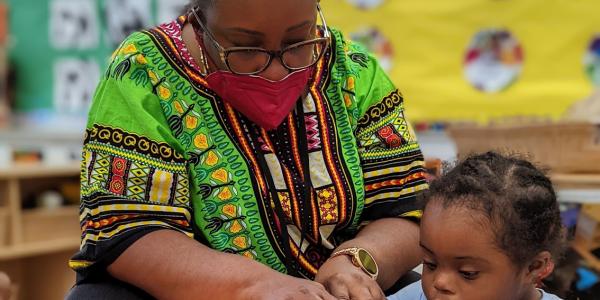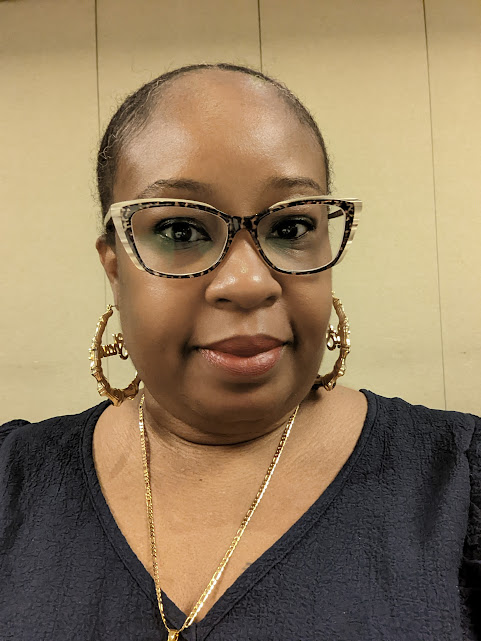Practitioner Reflection: CaShawn Thompson

You are here
Editors’ Note:
CaShawn Thompson has worked as an early childhood educator for 25 years—the past 22 with infants and toddlers. She currently guides a class of eight 2-year-olds at the Early Learning and Intervention Center—part of the Washington, DC-based National Children’s Center. As a toddler teacher, coregulation is part of CaShawn’s daily practice. Here, she shares what it looks like in action and how she partners with families to guide children as they develop self-regulation skills.
 You never know what a toddler is going to feel or how they’re going to express themselves. For me, coregulation comes down to relationships. I have to know who my children are: What’s important to them? What drives them? What supports do they need?
You never know what a toddler is going to feel or how they’re going to express themselves. For me, coregulation comes down to relationships. I have to know who my children are: What’s important to them? What drives them? What supports do they need?
I spend a lot of time at the beginning of the school year observing my children and getting to know them. Once that foundation is laid, I can tell what emotions they’re experiencing. Are they feeling frustrated? Are they feeling happy? Do they need a hug?
When a toddler is distressed, I give them a soft word, a soft touch. I give them language: “I know you don’t want to get changed right now, but we need to do this. How are we going to get there? How are you going to get to the changing table? Can we count our steps? Can you get your pullups?” I give them the language for what they’re feeling, and I also give them a solution: “Oh, you need a hug? We’ve got to hug it out. We’ve got to talk about it. We’ve got to sing a little song.” This helps them feel safe and prepared. It helps them feel respected.
When a child is experiencing any kind of stress or chaos, they need our calm. Remember, we’re their safe island. A safe island is a place they can come back to when the seas get rough.
It’s really important for me to share these strategies with families. Everybody—no matter what you have or where you are—everybody wants the best for their child. I rarely give families a negative report. I tell them what’s working. We partner up—I tell them, “I am an expert in child development; you are an expert on your child.” Their insights and contributions are important. We talk via our communications app or during drop-off or pickup. I share articles if families are having issues like tantrums or a child not wanting to go to bed. Again, that’s where relationships come in. I want to know where my families are from. What are their cultures? Have they experienced any trauma? I think about them holistically and care about them as individuals.
Everybody—no matter what you have or where you are—everybody wants the best for their child.
Two-year-olds are not easy. They’re really new to the planet! They’re learning to be people right now. But the world is waiting for them. They’re smart. They’re capable. I’m teaching them they can do hard things.
Photographs: courtesy of CaShawn Thompson
Copyright © 2024 by the National Association for the Education of Young Children. See Permissions and Reprints online at NAEYC.org/resources/permissions.